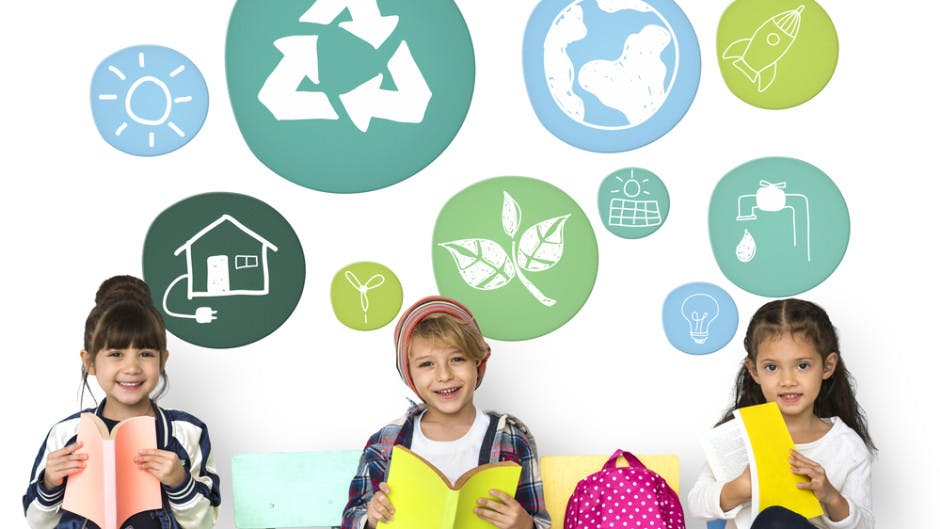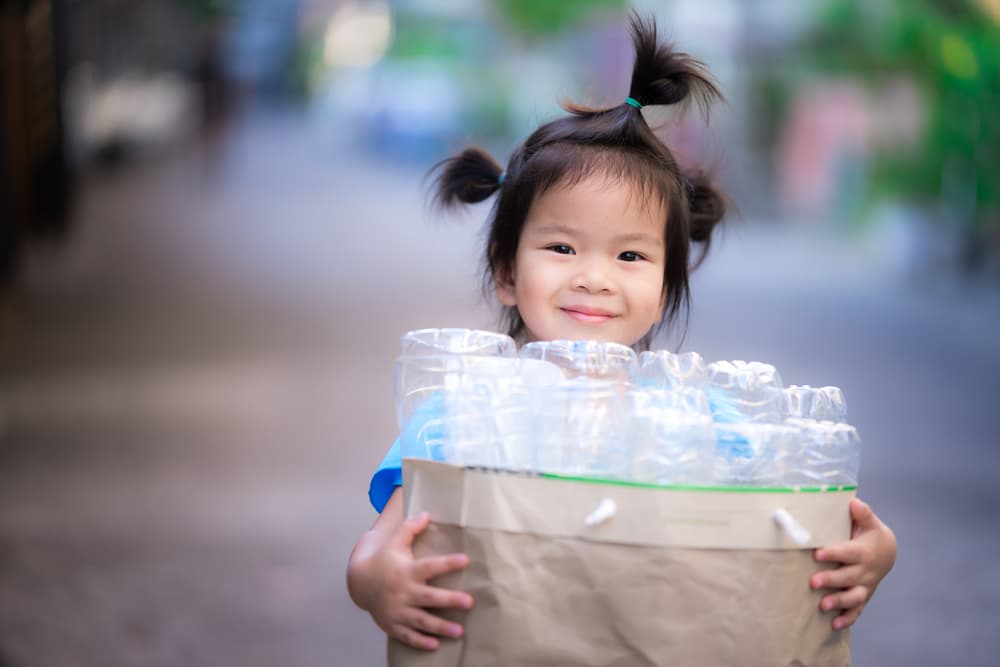


Going Green with Reading: 7 Earth Day Activities That Help Build Reading Skills

Discover Reading Eggs for free and access hundreds of engaging reading activities and e-books that promote essential literacy skills, including stories and nonfiction perfect for Earth Day. FREE trial
Connecting children with nature can foster love and care for the natural world. It can also help them grow up to think about how their actions can impact the environment.
Sustainability means taking care of the planet so that we can keep living on it for a long time. It's about using resources wisely, not wasting things and making sure there is enough for everyone, including plants, animals and their environment.
Since children learn best through play, here are seven fun activities to help develop your child’s reading skills while instilling the important values of sustainability and care for the environment.
1. Nature Alphabet
For young children, go for a walk in the park and add a reading twist. Get them to point out trees, flowers, rocks, or anything natural that takes their fancy. Ask them to say the word and then sound out the first letter. This will help them practise their phonics skills, which is an essential component of learning to read.
Make the game more challenging for older children by asking them to find objects that begin with a certain letter. Ask more advanced kids to spell out the words and use them in a sentence. Not only will this activity promote literacy development, but it will also encourage children to appreciate and learn about the natural world around them.
Related: Outdoor Literacy Games Your Kids Will Love
2. Create a scavenger hunt
Begin this fun activity by explaining to your child what it means for objects to be recyclable, energy-efficient or made from sustainable materials. This is also a great way to introduce new words to their vocabulary. For older children, you can even ask them to spell out the words. Show them the symbols for recyclable items, too.
Next, it’s time for the scavenger hunt! Get exploring around the house or in a local park to find items that fit into these categories. They can create a written list of the items they find, using the new vocabulary words they learned.
For younger children who may not be able to write yet, you can create a list for them with words like cans, paper, or food and encourage them to trace the word several times and draw a picture of it. As your child collects items, discuss with them why it's important to recycle and use sustainable materials. Praise them for helping keep the habitat clean and animals safe.

Join over 20 million happy users, so your child can also enjoy hundreds of fun learning activities and over 4,000 e-books with Reading Eggs. FREE trial
3. Reduce, reuse, recycle
Encouraging your child to recycle is an important step in teaching them about sustainability and environmental responsibility. Begin this activity by reusing old boxes to create recycling bins. Get creative decorating the boxes with paint, markers or better still, other recycled materials. Then label them with the items that should be recycled.
To make the labels, use paper scraps that you have lying around. Get your child to trace the words for each label, for example, cans, paper, glass or food. Explain that you can reuse some of these materials for storage or craft.
Got some bubble wrap lying around? Reuse it for this fun activity with your child. For more fun craft videos, sign up for a FREE 30-day trial of Reading Eggs (which includes Reading Eggs Junior).
4. Environmentally friendly craft activities
Repurpose old magazines to create colourful ABCs, words or sentences. Your child will love getting hands-on with their literacy skills by cutting up letters and sticking them on paper.
Get your child to cut out letters or words from magazines and paste them onto paper to create an alphabet, word bank or story. This activity can help improve their literacy skills, letter recognition, phonics skills and sentence structure. Plus cutting and pasting the letters can help enhance their fine motor skills.
As they create their work, ask them to sound out each letter or word to improve their phonemic awareness, or for older children, practise blending and reading the words aloud to improve their reading fluency.
5. Go for a hike and collect plastic
Take gloves along for your expedition. Take in the beauty of nature and take out things that don’t belong there. Keep an eye out for cans, bottles, papers and paper bags. Explain why.
Then write a diary entry together about this experience in your child’s own words. They might also enjoy illustrating it. If you have a more advanced writer, ask them to create their own diary entry about their experience.
6. Write sustainability-themed poetry
Sustainability-themed poetry is a creative and enjoyable activity for children of all ages. For younger kids, try writing a short poem together, about their favourite animals, flowers or the beach. This will help both their literacy skills and get them thinking about the natural world around them.
For more advanced readers and writers, encourage them to write an eco-poem that explores the importance of sustainability and environmental conservation. You can provide some words or ideas to give them a helping hand, such as conserving natural resources and reducing pollution.
7. Create a word snap game
To make the game, start by recycling paper that your child has already used, such as printouts they've drawn or written on. Cut the paper into small rectangular cards and write one word on each card. Use words that your child is familiar with and that are at their reading level.
Then, shuffle the cards and deal them out evenly between you and your child. Take turns flipping over a card and saying the word on it. If the two cards match, the first person to snap their hand down on the cards gets to keep them. The winner is the person with the most cards at the end of the game.
Environmental education is crucial for kids in today's world. By teaching children about sustainability, we can help them understand the importance of protecting our planet and instil in them a sense of responsibility to act.
Reading is an effective tool to promote environmental education for kids, as it gives them knowledge and inspiration to make a positive impact on the environment. By introducing children to reading activities that explore sustainability topics, we can cultivate their curiosity, creativity and critical thinking skills.
Looking for more? Check out these inspiring Earth Day children’s books from the Reading Eggs online library.
Try Reading Eggs for free today!
Looking for more fun and engaging educational activities for your child? Reading Eggs is the multi-award winning online reading program for ages 2–13 packed with interactive lessons, games and rewards. Each online lesson comes with printable worksheets for offline learning. Plus, the huge Library with over 4,000 fiction and nonfiction titles will inspire a love for reading. Start your 30-day free trial today and get access for up to four children.


